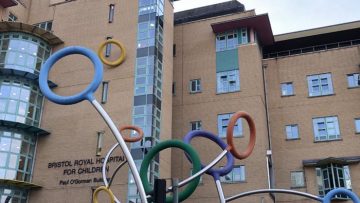Monday 2nd September 1996. An Industrial Visit to Toyota Motor Manufacturing (UK) Ltd., Burnaston, Derbyshire. Meet at 12.46 p.m.
Tuesday 24th September 1996. (Joint visit with IMechE.) Visit to the British Horological Institute, Upton Hall.
Surrounded by beautiful grounds Upton Hall is a Grade 2* listed building and houses the British Horological Institute’s intriguing clock and watch collection. Started in 1858, the British Horological Museum has been growing ever since. The Institute moved to Upton Hall in 1972 and has grown to a point where it is one of the major horological collections in the country. All types of timekeeping devices are featured in the collection, and although the Institute specialises in the collection of modern electric clocks, all other patterns of clock and watches are well represented.
Wednesday 9th October 1996. Applied Mathematics Research – the key to the Engineering future. A Presidential Address by Professor David Crighton (University of Cambridge). 7.30 p.m. De Montfort University.
Professor Crighton will explain how applied mathematics research holds the key for future developments in engineering. The applied mathematical modelling skills will be presented with applications in the physical sciences and technology to show how these approaches give results of information not otherwise available. This includes the understanding of the basic processes in balance at any stage, along with the associated scaling laws and design rules that follow from such understanding. Numerical predictive capability and the identification of clear possibilities and mechanisms for control of behaviour and performance of components in industrial processes will be explained.
Monday 4th November 1996. (Joint with IMechE.) Operational Research Modelling to Increase the Output of a High-Tech Production Plant. A talk by Professor A.H. Christer (University of Salford). 7.30 p.m. in the Heap Lecture Theatre, University of Derby, Kedleston Road Site.
The talk reports on an active research study which highlights the contribution of maintenance modelling to high-tech steel production. A stochastic O.R. model is developed of the behaviour of plant under different maintenance systems, along with the consequences to production.
Simpler modelling options are possible, but the increased insight into both the engineering and management aspects derived from the stochastic approach are highlighted. The study is a collaboration between O.R. scientists, statisticians and engineers.
Monday 2nd December 1996. Sunshine on a Rainy Day: Chaos and Fractals in Simple Mathematical Systems. A talk by Dr. C.C. Beardah (The Nottingham Trent University). 7.00 p.m. in Room G030, Clifton Main Site, The Nottingham Trent University.
One of the important messages of the new science of chaos is that very simple mathematical systems can exhibit extremely complex behaviour. In this talk we aim to demonstrate this fact by considering some simple iterations. The mathematics involved is very simple, indeed it is possible to investigate the subject on any hand-held calculator. Though the basis of the subject is very easy to understand these iterative methods can lead to all kinds of fascinating phenomena such as period doubling, bifurcations and chaos itself. Furthermore, graphical representation of the results can lead to fractal images of stunning beauty and complexity.
We will demonstrate some of the properties of fractal images by investigating a family of fractals generated by a process called the Chaos Game. This process can lead to images which bear an uncanny likeness to many objects found in nature, such as trees and clouds.
Another characteristic of chaotic systems is their sensitive dependence upon initial conditions, also known as the Butterfly effect. We will also demonstrate this property with reference to simple iterative processes and briefly discuss its implications in other fields such as weather forecasting.
Monday 3rd February 1997. Who needs Mathematics Teachers now Technology does it all? A talk by Neil Challis and Harry Gretton (Sheffield Hallam University). 7.30 p.m. in Room A1, Pope Building, Nottingham University.
The advent of super calculators which are cheap, portable and personal has made the mechanics of mathematical processing automatic. When all students have this portable power, how do we as mathematics teachers avoid simply showing them which button to press? What is “doing Maths” now?
We think it takes a lifetime to learn how to teach mathematics using ever-changing technology. It takes a new way of looking at mathematics and mathematics education. It takes conversations with colleagues to spark the grand ideas that are within, and it takes hard work to develop the learning and assessment strategies that will create confidence, competence and a desire to learn in our students.
Included in the talk will be a demonstration of a range of cheap, super graphics calculators and their companion Calculator Based Laboratory (CBL), with the famous bungee-jumping beer can!
Whilst an evening at Nottingham is not a long time, nor will it replace years of experimentation, it is a good local opportunity to talk about ideas that could change the way you teach mathematics.
Thursday 13th February 1997. (Joint with RSS.) Public Opinion Polls: the 1992 Disaster and the Prospects for 1997. A talk by Professor T.M.F. Smith (University of Southampton). 7.30 p.m. in Room 004, Clifton Main Site, The Nottingham Trent University.
The public opinion polls conducted before the 1992 general election were a disaster. The errors were far in excess of expected sampling variation and can only be explained by biases specific to the context of the 1992 election since previous election results had been forecast accurately. The replication in the polls in the months before the election provides a natural experiment from which the sampling variance of quota samples can be estimated. Using a components-of-variance model, company-specific variances are estimated and are found to be consistent with those which would have been obtained from equivalent random sample designs.
Fitting time series models to polling data prior to elections suggests that there is little change in the opinions about voting in the month prior to the election. If this is true then the need for polls to provide instant results is less pressing. A case is made for a well designed random panel survey to be conducted alongside the standard quota samples used by most polls.
Saturday 8th March 1997. Branch Dinner at Midland Derby Hotel (Opposite Railway Station), Midland Road, Derby, DE1 2SQ.
The Branch Dinner is an informal event to provide a congenial atmosphere to meet with fellow members of the IMA and their guests. The Midland Derby Hotel has proved in recent years to be an excellent venue providing first class hospitality in a period setting. Vegetarian or other special dietary requirements can be catered for with prior notice. Wines and other drinks are available on a cash basis.
Wednesday 14th May 1997. Secret Mathematics. A talk by Gareth Davies (Coventry University). 7.30 p.m. in Lecture Room J001, Edward Herbert Building, Loughborough University.
A light hearted look at the gentle art of keeping, and telling, a secret.
The talk will discuss:
- some mathematical milestones in the history of cryptography
- the current “magic” public key systems which are akin to “mathematical telepathy”
- what the future may bring, where every conversation and document will be automatically encrypted at source
The talk will include a live demonstration in which a secret will be openly passed between two members of the audience without the need of a common secret key. Finally there will be a brief discussion of “quantum cryptography”, which exploits the spooky action at a distance that nature seems to possess at the quantum level.
Wednesday 11th June 1997. An Industrial Visit to Church Wilne Treatment Works (Severn Trent Water). 7.00 p.m.
Throughout the region Severn Trent Water have a number of visitor centres specially designed to welcome customers and show them about their operation. Severn Trent combine video, site tour and slide presentation to show how water and sewage is cleaned to meet the very high standards set by Britain and Europe. The Church Wilne Water Treatment Works can be readily seen from the M1 motorway between Nottingham and Derby. A works which combines traditional and state of the art technology, it provides water to parts of Nottingham and into the Severn Trent “grid”.



